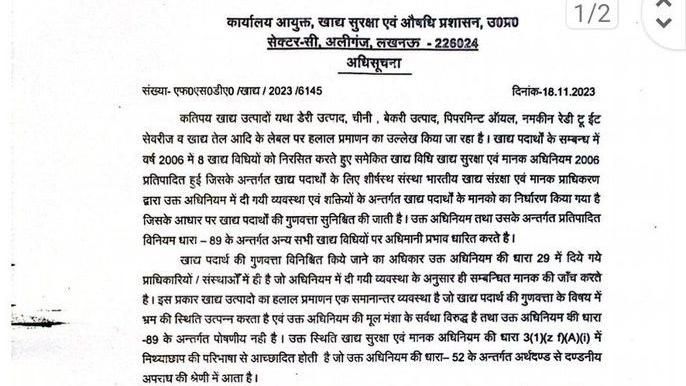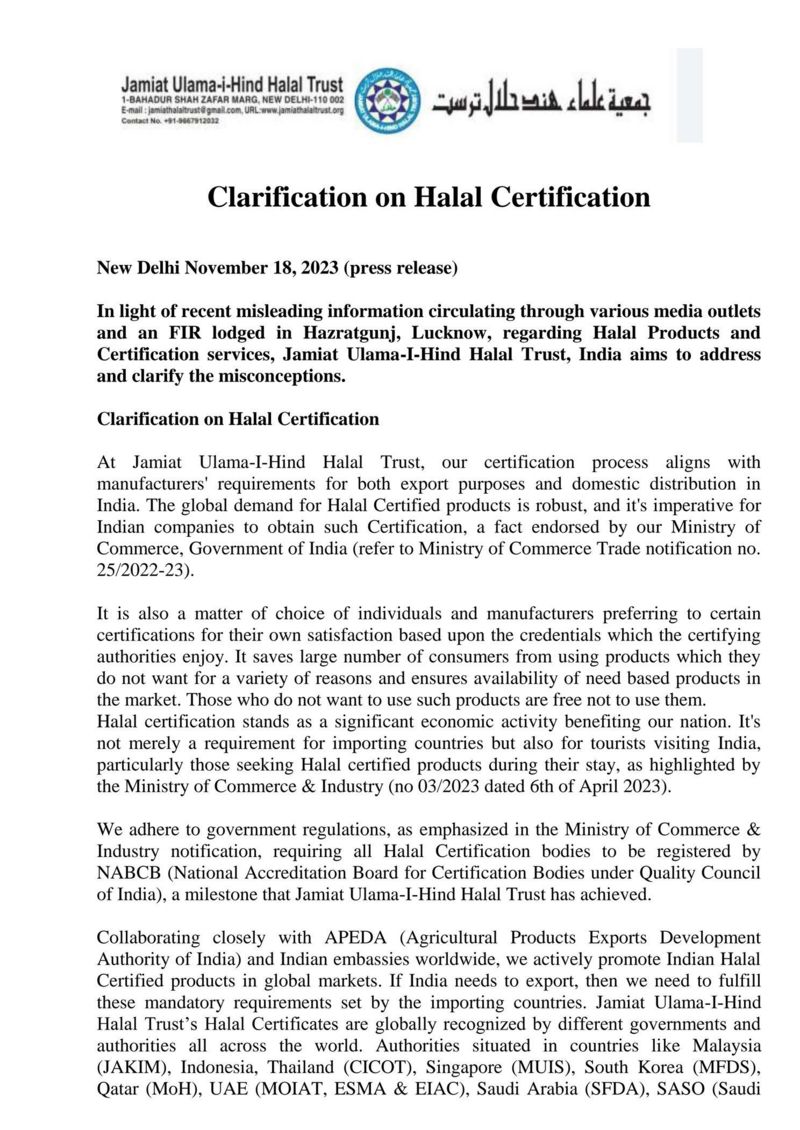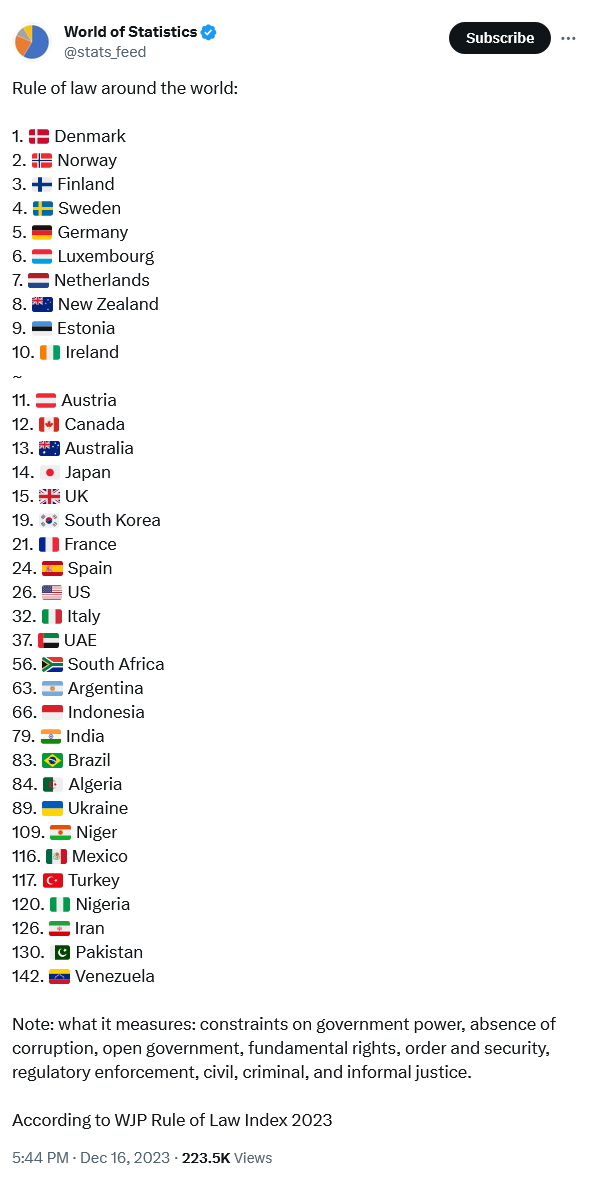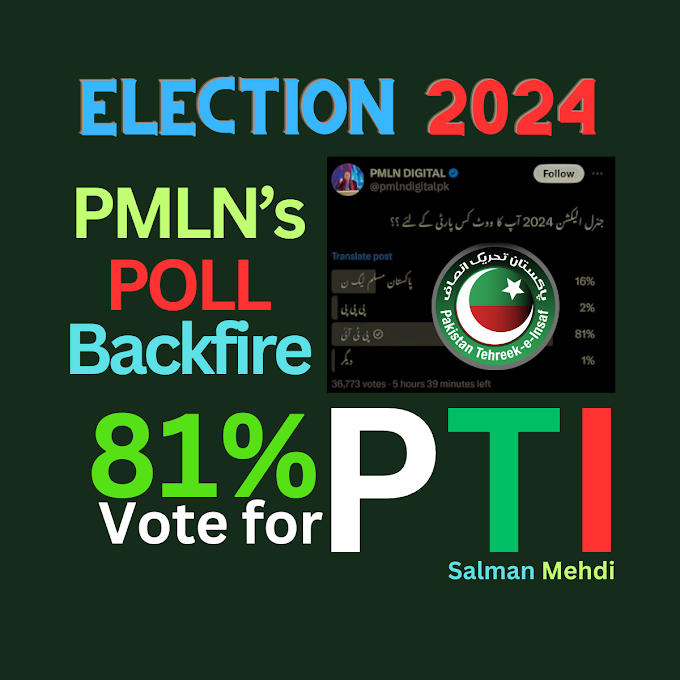The recent ban on "Halal" labeling in Uttar Pradesh and the push for its removal across India have sparked a wave of discussions and concerns. This move, initiated by the Indian government, has led to a myriad of reactions, with Hindutva supporters applauding the decision on social media, while minority Muslims express worries about potential discrimination. This article delves into the details of this controversial development, examining its legal aspects, social implications, and the broader context within which it unfolds.
Legal Landscape: The foundation of this controversy lies in the FIR filed at Hazratganj Police Station, Lucknow, on November 17, 2023. Complainant Shailendra Kumar Sharma, a social worker, raised serious allegations under Sections 153, 420, 467, 468, 471, 384, 120, 298, 505 of the Indian Penal Code. The accused include well-known entities such as Chennai's Halal India Private Limited, Delhi's Jamiat Ulema Hind Halal Trust, Halal Counseling of India, and Mumbai's Jamiat Ulama in Maharashtra. The charges revolve around alleged financial improprieties related to Halal certification.
Muslim Concerns and Government Response: While the Hindutva community supports the government's stance, minority Muslims express concerns about double standards and view the ban as a ploy to exclude them from the food and beverage industry. The government's immediate ban on the production, storage, distribution, and sale of labeled Halal food items in UP adds to these anxieties. Notably, the UP government exempted vegetable-based products like oil, soap, toothpaste, and honey from this requirement. However, the Muslim community sees this as a deliberate attempt to undermine their cultural practices.
Controversial Products and Legal Justifications: The controversy intensifies with the halt on labeling for essential items such as milk, curd, butter, sugar, bakery products, peppermint oil, and edible oil. The government justifies this by waiving the Drug, Medical Devices, and Cosmetics Act and the Rules and Regulations of 1940, asserting that Halal certification is irrelevant to these regulations. Labeling these products as Halal, according to the government, would be considered a punishable offense.
Political Context: The political backdrop of this controversy extends to the narrative of Imran Khan during his regime, where he consistently criticized the fascist ideas of Hindutva and RSS. Despite his efforts to highlight the two-nation theory of Quaid-i-Azam Muhammad Ali Jinnah, there was limited support from both Pakistani politicians and the Muslim community in India. The escalation of tensions, marked by events like the demolition of the Babri Masjid and the construction of the Ram Temple, has led to attacks on mosques and educational institutions, with Muslims facing adversity since the removal of Article 370.
Global Perspective and Muslim Ummah Response: The article explores the international community's response to the situation, questioning why the Muslim Ummah and the wider global community remain relatively silent. A comparison with Western countries is drawn, where better laws provide individuals with the freedom to live and conduct businesses in accordance with their lifestyle. The contrast emphasizes the challenges faced by Muslims in their own countries, where they feel increasingly constrained and marginalized.
In conclusion, the ban on Halal labeling in India raises critical questions about religious freedom, cultural sensitivity, and the protection of minority rights. This article has aimed to provide a comprehensive overview of the controversy, analyzing its legal, social, and political dimensions. The implications of this decision reach beyond the immediate concerns of the Muslim community, prompting a broader conversation about the balance between individual liberties and governmental regulations in a diverse and pluralistic society.
Explore the intricacies of the recent ban on Halal labeling in India, unraveling legal complexities, social repercussions, and the broader political landscape. Delve into the debate surrounding religious freedom and minority rights in this in-depth analysis.
#HalalBan #ReligiousFreedom #IndiaControversy #MinorityRights #HalalCertification #IndianPolitics
جن کو مان تھا گاندھی کے ہندوستان پر وہ پریشان ہیں حلال فری سرٹیفیکیٹ پر
یو
پی میں "حلال " لیبل لگانے پر پابندی کے بعد اور پورے بھارت سے حلال لیبل
ہٹانے پر آمادہ کیا جارہا ہے۔17 نومبر 2023 کو لکھنئو کے حضرت گنج پولیس اسٹیشن میں ایف آئی آر رجسٹرڈ ہوئی ہے۔4 میں سے 1 ایف آئی آر درج کروانے والے شیلیندر کمار شرما
ایک سماجی کارکن ہیں جنہوں نے موتی جھیل
کالونی عیش باغ ، لکھنئو پولیس اسٹیشن میں
تعزیرات ہند 153، 420، 467، 468، 471، 384، 120، 298، 505 کی دفعات پر شکایت درج کروائی۔ جس میں چنئی کی حلال انڈیا پرائیویٹ لمیٹڈ، دہلی کی
جمعیۃ علماء ہند حلال ٹرسٹ، حلال کونسلنگ آف انڈیا اور مہاراشٹر میں ممبئی کی
جمعیۃ علماء کے ساتھ ساتھ حلال سرٹیفیکیشن کے نام پر پیسے وصولنے میں ملوث کچھ
نامعلوم افراد شامل ہیں۔
سوشل میڈیا پر بھارتی حکومت کے اس اقدام کو ہندوتوا کے چاہنے
والے جہاں سراہ رہے ہیں وہیں اقلیتی مسلم اس پریشان بھی ہیں۔یہ دوہرا معیار مودی
حکومت کی سازش ہیں تاکہ مسلمانوں کا کھانے
پینے کی اشیاء کے کاروبار سے دور کیا جاسکے۔یو پی میں پیش قدمی یہ کہ کھانے پینے
کی اشیاء کی تیاری ، ذخیرہ کرنا، تقسیم و فروخت پر فوری طور پر پابندی عائد ہے ۔
محتاط رویّہ اختیار کرتے ہوئے یوپی حکومت نے
بیان دیا ہے کہ تیل ، صابن، ٹوتھ
پیسٹ اور شہد جیسی و سبزیوں سے جڑی مصنوعات کیلئے حلال سرٹیفیکیٹ کی ضرورت نہیں ہونی
چاہئے۔ جبکہ مسلمان اسے دانستہ سازش مان رہے ہيں۔ مسلمانوں میں تب تشویش بڑھی جب
دودھ، دہی ، مکھن، چینی و بیکری کی مصنوعات، پیپرمنٹ آئل، خوردنی تیل پر حلال لیبل
لگانے سے روکا جانے لگا۔ حکومت نے دوا، طبی آلات، اور کاسمیٹکس
ایکٹ اور 1940 کے قواعد و زوابط سے مبرّہ بتاتے ہوئے کہا کہ حلال سرٹیفکییشن کا باالواسطہ یا بلا واسطہ اس ایکٹ سے
کوئي تعلق نہیں۔ اور اسی لئے حلال
کا لیبل لگانا قابل سزا جرم تصوّر کیا جائے گا۔
عمران خان اپنے دور
حکومت سے ہندوتوا اور آر ایس ایس کے فاشسٹ
نظریات پر آواز اٹھاتے رہے اور قائد اعظم محمد علی جناح کے دوقومی کی نظریے کی
وضاحت بیان کرتے رہے ، لیکن تب نا پاکستان سیاستدانوں نے انکا ساتھ دیا نا
ہندوستان سے مسلمانوں نے حمایت ، بابری مسجد کے انہدام اور رام مندر کی تعمیر کے
بعد اب یہاں تک بات پہنچ چکی، ہے پہلے مسلمانوں کی مساجد اور تعلیمی اداروں پر
حملے ، آرٹیکل 370 ہٹانے سے لیکر بےگناہ مسلمانوں کا قتل پورے ہندوستان میں مختلف
مقامات و شہروں میں ہوا۔ اب یہ مسلمانوں
کی زندگی اس طرح اجیرن کررہے ہیں کہ انہیں ناکھانے کا کوحلال ملے نا پہننے کو نا
پکانے کو اور دوائی حلال دی جائے بلکہ ان مسلمانوں کے کاروبار ، اور جہاں جہاں کسی
کمپنی یا دکان کا نام بھی مسلم ہوتو اسے ختم کردیا جائے۔ تاکہ ہرجگہ اسرائيل کی
طرح صرف ہندو توا نظر آئے۔ عالمی برادری، مسلم امّہ چپ سادھے بیٹھی ہے۔ بھارت و
پاکستان یا بنگلہ دیش سے بہتر قوانین تو مغربی ممالک کے ہیں جہاں انسانوں کو اپنے
طرز زندگی کے عین مطابق زندہ رہنے و کاروبار کرنے کی مکمل آزادی فراہم کی جاتی۔
یہاں مسلمان اپنے ہی ممالک میں یرغمال ہیں۔














